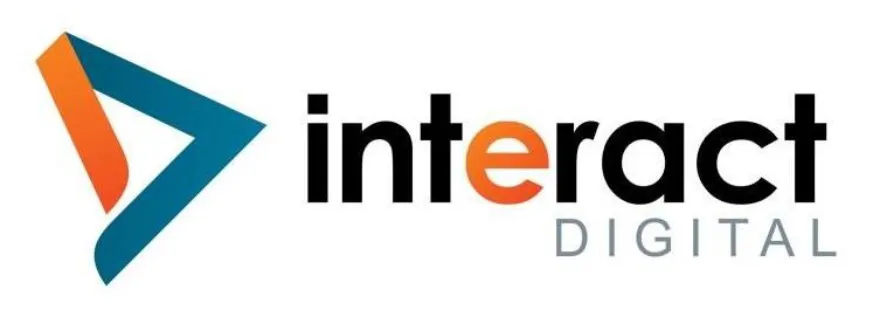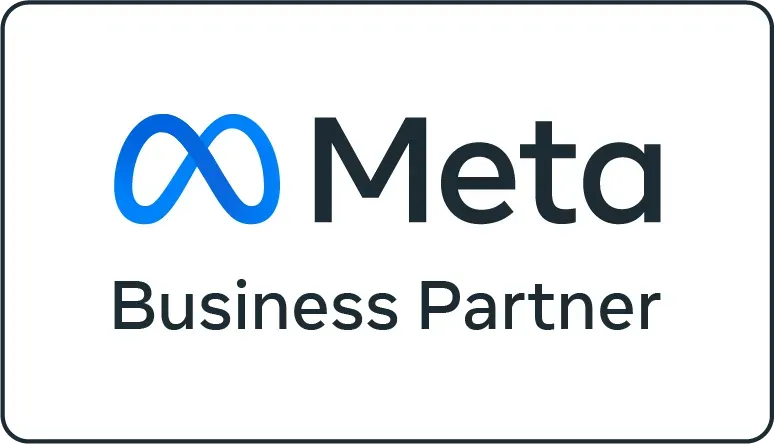Digital Marketing Agency
Data Driven Digital Marketing That Acquires Sales Fast
CLICK BELOW TO GET STARTED TODAY

I’ve been working with Jarrod & Serena for nearly a year now and have seen substantial growth in my business. Unlike other companies that I have dealt with in the past they are the real deal. They monitor all their Ad & SEO campaigns, constantly critiquing, to ensure that a revenue generating outcome is achieved. Highly recommend their services.
Laserclear A.
Verified Google Review


Business Warriors are the best marketing agency I’ve worked with so far, they deliver extraordinary results in a timely manner, along with their great experience in the field through which they can lead businesses to huge success.
Dua F
Verified Google Review


I have been working with Jarrod for 3 years now. I tripled my income in 3 days working on my own in a hair salon. Now I own 3 businesses and have 5 staff. We are constantly growing and I couldn’t do it without the Business Warrior team. I highly recommend Jarrod and invite you to trust in him.
I am happy for anyone to give me a call and ask me for my experience. I am still currently working closely with the team.
Karina D.
Verified Google Review


I cannot speak of Jarrod and his team highly enough! I was very nervous at first because I had been let down by 2 marketing agencies in the past. But I decided to trust my instincts with Business Warriors, and I have not looked back!!! my business has grown in revenue ever since. These guys know their stuff, they listen and implement fast and when things are not giving me results, they take the initiative to tweak things until we get results. This is 1 part of my business I feel like I don't need to worry about, and they feel like part of my team and always cheer me on too! We are now working together for nearly 2 years and they are helping me kick my sales goals each month. Do yourself a favour and sign up with Business Warriors, your business will thank you in the numbers!
SkinFit New Farm
Verified Google Review

No Cookie Cutter Digital Marketing Strategies here

Strategy Customised To Your Business And Situation
At our Digital Marketing Agency Business Warriors we realise that business can be tough cash flow can be tight as you grow therefore there isn't a 1 size fits all to grow your business so the first step with us is to always do a free marketing plan with you to get super clear on what your game plan will be prior to even discussing working together.

Results For Your Business Thats All That Matters
Your business hitting the goals your after this year is all that matters to our digital marketing agency.
Return on investment is where all strategy starts and is the benchmark to where our KPI's as a company for you stem from and we believe in a what ever it takes mindset

Get Everything Done For Your Business You Need To Succeed
Our digital marketing agency is full service and does everything in house so there is no need to contract multiple businesses just to get done what your business needs to succeed.
Multiple digital marketing agencies are now a thing of the past.
Digital Marketing Agency Services Completely Done For Your Business
Driving Growth For Businesses Across Australia, New Zealand, USA, Canada And The United Kingdom Meet Your Last Online Marketing Company Ever
Focusing On Just One Form Of Digital Marketing Doesn't Work Anymore
We hear this too often "I used an agency previously and I didn't get the result" Or "My Current Agency Doesn't Understand My Business" This is a large reason why we do a FREE MARKETING PLAN upfront because it helps us fully understand your business. If you are like a lot of other businesses and you get growth by keeping clients and getting customers to always come back and buy more products and services from you at higher price points to increase the lifetime value of each client/customer then this is why you need more than one form of marketing.
We all know having first movers advantage in business has huge advantages however imagine being the first person a client sees before they are ready to buy your product or service. But to also be there to capture people when they are ready to buy and then get them to repeat business with you time and time again. This is how businesses are grown and how you will grow your business in 2024
No Obligation, No Catch, Just Free Advice And A Plan Without The BS. CLICK BELOW To Get Started Today
What digital marketing services can we provide
PPC advertising works by allowing advertisers to bid on specific keywords or phrases that are relevant to their target audience. Advertisers can create ads that will be displayed to users who search for those keywords or phrases. When a user clicks on an ad, the advertiser pays a fee to the platform where the ad was displayed.
If you want to become the go to
business in your area content marketing is a big part of this, its not just take photos and putting them on your social media profile that will get you the result in your content marketing strategy
Too many business don't optimise what they current have around their business in order to been seen by their ideal clients use SEO to be seen by your clients without having to pay for the eyeballs
Social media is a pivotal part of growing your business know what to post, when to post and how to post it so it effectively builds the brand in a machine that gets people to click through to your website or into your booking system to book a service with you or buy products
Building a website is ok but building a website that converts traffic into bookings and sales for your business is a completely different thing we help create website that convert traffic to bookings for your business
If you have a specific offer your
business uses to bring in new clients this is where you would want a funnel created to get people to buy your service online

Conversion Rate Optimisation
Your business conversion rates extend a lot further than you or your team answering the phone, it also stems too your consultations, your product sales, your website visitors to booking or sale rate optimising these areas by as little as 5% can make a large difference as to where your business growth will be in as little as 12 months
Email and text message marketing is the ultimate way to continue to keep your current clients active and to continue to buy from you ever single week, month and year

Business Coaching
Getting new clients is great, but how do you get clients to come back 3, 4, 6, 10, 15 times a year and create a delivery model that helps you grow with more predicatbility
Who Is Business Warriors | digital Marketing Agency

Business Warriors has evolved over the years to the digital marketing agency based in Perth that helps businesses to scale through predictable and scalable sales and marketing acquisition systems while making sure to remain profitable with the appropriate systems and processes.
Our specialty is helping your business to increase the amount of visibility you get daily through specific
content marketing and SEO Strategy using the algorithm to your businesses advantage.
We then like to increase your businesses conversation rates through sales training, website optimisation and conversion rate testing systems.
Once these things are done, we add fuel to the fire with bulletproof hyper targeted PPC advertising and Social media marketing retargeting to accelerate your results over the long term.
We like to set big targets and provide guarantees to our clients otherwise we don't get paid for what we do. We also serve various industry markets, including automotive marketing, childcare center marketing, adult SEO, medical marketing, and medical SEO
www.growasalon.com is a product company owner by http://www.businesswarriors.global our registered company is Business Warriors Pty Ltd.

How Can our digital marketing agency Help You
Warriors Hook A Killer Offer To Hook In Your Ideal Client
Pick your battlefields (Social Media Marketing) Meta Advertising across Facebook, Instagram and whatsapp, LinkedIn Marketing, Google Advertising, Bing advertising, TikTok Advertising, and SEO (Search Engine Advertising)
Content Marketing to acquire brand awareness and buyers before their ready to buy, paid ads and organic content marketing to find people when their ready to buy and email marketing and text marketing to get clients to buy from you time and time again.
Warriors Strike (making the right offer in front of your ideal dream clients that will pay you the most)
Doubling the number of enquiries your business gets in a 12-month period
The Warriors conversion formula (setting appointments & getting them to show up)
The Warriors Pitch (the most tested selling system ever, for real) so you and your team close a higher ratio of leads coming through your campaigns
How to create world class products and high-priced products and services and experiences for your clients so that you can charge a premium and stand out from everyone else
How to keep feeding your business from this skill for years to come (retention of clients)
How to leverage yourself and build world class high performing sales teams
Plus so much more












Our Blog

How To Find Keywords: The Best Guide for Effective SEO Strategies
Introduction to Keyword Research
Keyword research is a crucial step in search engine optimization (SEO) that helps identify the best keywords to target for a website or business. SEO keyword research is the process of finding and analyzing keywords for both organic search and paid campaigns to improve visibility and reach the right audience.
It involves using keyword research tools to find and analyze SEO keywords and research keywords that have high search volume and low competition, and are relevant to your business. Finding keywords using various strategies and tools is essential, and analyzing keywords relies on keyword data as a critical input for making decisions. Evaluating a given keyword involves considering its search volume, competition, and business potential to determine its value for your SEO strategy.
Effective keyword research helps businesses create a content strategy that drives traffic and conversions. Keyword research is important because it ensures your website aligns with the search terms your target audience actually uses, preventing mismatches and improving visibility. Additionally, keyword research is important because it helps you understand the language your audience uses and ensures your content matches their intent. Understanding the user’s search term is key to improving content targeting.
Understanding keyword research concepts is essential for developing a successful SEO strategy. The keyword research process is a step-by-step approach that includes identifying, analyzing, and prioritizing keywords using tools and techniques like competitor analysis and content gap analysis. These tools can also be used to analyze keywords for competition and opportunity.
Keyword research tools, such as Google Keyword Planner and Ahrefs, provide valuable insights into keyword trends and search behavior, as well as keyword insights provided by these tools. Some tools provide search volume ranges, which can help users better identify valuable keywords for their campaigns.
What is Keyword Research
Keyword research is the foundation of any successful search engine optimization (SEO) strategy. It involves identifying and analyzing the words and phrases—known as keywords—that people type into search engines when looking for information, products, or services. By understanding which keywords have significant search volume and are relevant to your business, you can tailor your website and content to better match what your target audience is searching for. This process not only reveals the language your audience uses but also uncovers trends in search behavior, helping you stay ahead of the competition. Effective keyword research allows you to prioritize relevant keywords that will drive qualified traffic to your site, making it an essential step in optimizing your online presence for search engines.
Importance of Keyword Research
Keyword research is a critical component of any digital marketing strategy because it directly impacts your visibility in search engine results. By identifying keywords with high search volume and manageable competition, you can focus your efforts on terms that are more likely to bring in traffic and conversions. Keyword research helps you understand your target audience’s needs and preferences, enabling you to create content that resonates and addresses their specific questions or problems. Optimizing your website’s content, meta tags, and titles with the right keywords can significantly improve your search engine rankings, making it easier for potential customers to find you. Additionally, keyword research is invaluable for paid search campaigns, as it helps you select the most relevant and high-performing keywords to maximize your return on investment. Ultimately, keyword research helps you create content that attracts, engages, and converts your ideal audience.
Understanding Your Audience and Competition
A successful keyword research strategy starts with a deep understanding of your audience and your competition. Knowing who your target audience is, what they care about, and how they search online is essential for uncovering the right keywords. Start by analyzing customer feedback, reviews, and social media conversations to gain insights into your audience’s preferences and search behavior. This helps you identify the language they use and the problems they’re trying to solve.
Equally important is researching your competition. By using keyword research tools like Google Keyword Planner, Ahrefs, or SEMrush, you can uncover which keywords your competitors are targeting and how they’re ranking in search engines. Look at their domain authority, content quality, and backlink profiles to assess your chances of outranking them for specific keywords. Identifying gaps in your competitors’ keyword strategies can reveal valuable opportunities for your own site. By combining audience insights with competitive analysis, you can build a keyword strategy that targets high-potential keywords and positions your content for success.
Understanding Keyword Research Concepts
Search Intent
Search intent refers to the reason behind a user’s search query, which can be informational, navigational, or transactional.
Understanding search intent is crucial for creating content that meets the user’s needs and improves search engine rankings.
Keyword research tools can help identify search intent by analyzing search volume, competition, and keyword phrases.
Informational keywords are searched by people looking to learn or understand a topic. Commercial keywords, such as “buy” or “shop,” indicate transactional intent, while informational keywords, such as “what is” or “how to,” indicate informational intent. Transactional keywords are searched by users who are ready to make a purchase or complete a transaction.
Keyword research for SEO involves identifying the right keywords that match the search intent of the target audience.
Keyword Research Tools
Keyword research tools, such as keyword research tool, keyword tool, Google Keyword Planner, Ahrefs, and SEMrush, provide valuable insights into keyword trends and search behavior. Google's Keyword Planner is widely used for keyword research, providing search volume and traffic estimates, but requires an AdWords account to access. The best keyword research tools offer a range of features, including keyword suggestions and keyword ideas based on search data and user queries.
These tools, including the keyword planner tool, help identify keyword opportunities, analyze competition, and optimize content for better search engine rankings. Many of these tools also provide insights into people search queries and trends, allowing you to better understand what users are actively searching for.
Free keyword tools, such as Google Trends and AnswerThePublic, can also be used to find keyword ideas and analyze search volume. Google Trends can show the popularity of keywords over time and help identify seasonal trends. WordStream's Free Keyword Tool offers keyword search volumes, competition levels, and contextual keyword suggestions based on a user's industry and country. Using a free tool or free tools for keyword research allows you to access valuable data and insights without incurring costs.
To access Google Keyword Planner, you need a google ads account. Google search console and search console are also essential for keyword research and performance analysis, helping you track rankings, analyze Google search results for competition and SERP features, and discover new opportunities. Ahrefs Webmaster Tools shows all the keywords a website ranks for, along with their Keyword Difficulty score and monthly search volume, unlike Google Search Console which only shows the top 1,000 keywords. Monitor keyword performance using tools like Google Search Console and adjust strategies accordingly. All of these are part of a broader set of seo tools that support your overall SEO strategy.
Identifying Keywords
Brainstorming Keywords
Brainstorming keywords often starts with a seed keyword, which is the foundational term related to a business or topic. Start with seed keywords, which are broad foundational topics related to your business.
This can be done using keyword research tools, such as Google Keyword Planner, or by analyzing competitor websites and industry trends.
It is important to select a focus keyword for each page, as this is the main term you want the page to rank for in Google. Use the focus keyword naturally in your content to optimize for both users and search engines.
Long-tail keywords, such as “women’s running shoes,” can be more effective than broad keywords, such as “shoes,” because they have lower competition and higher conversion rates.
Keyword research for SEO involves identifying a list of relevant keywords that can be used to create content and drive traffic. Brainstorming is also a great way to generate new keyword ideas that can enhance your content strategy.
Long Tail Keywords
A long tail keyword is a longer, more specific phrase that typically has lower search volume and less competition than broad keywords. Long-tail keywords can collectively generate significant traffic, even though individual search volumes may be low.
They can be more effective for businesses because they have higher conversion rates and are more targeted to the user’s search intent. Targeting long-tail keywords can make it easier for smaller websites to rank higher in search results.
To find long tail keywords, you can use AI tools or keyword research tools like Ahrefs and SEMrush, which help identify less competitive, highly relevant phrases that align with user needs. Many users use long-tail keywords in AI search queries, making them increasingly relevant for SEO. Ahrefs' Free Keyword Generator Tool returns 20 related keywords and 20 related questions for each seed keyword, totaling 40 keyword ideas.
Long tail keywords often include transactional keywords and commercial keyword phrases, making them valuable for targeting users who are ready to make a purchase or take action, thus improving conversion rates.
Examples of long-tail keywords include “best coffee shops in New York” or “how to make a website.”
Benefits of Long Tail Keywords
Long tail keywords are longer, more specific keyword phrases that play a crucial role in effective keyword research. Unlike broad keywords, long tail keywords typically have lower search volumes but offer unique advantages for reaching your target audience and improving your search engine optimization efforts.
Key benefits of targeting long tail keywords include:
Increased conversion rates: Because long tail keywords are highly specific, they attract visitors who are further along in the buying process and more likely to convert. For example, someone searching for “best running shoes for flat feet” has a clear intent and is more likely to take action than someone searching for just “shoes.”
Lower competition: Long tail keywords generally face less competition in search engine results, making it easier for your website to rank higher and gain visibility, especially if you’re just starting out or have a newer site.
More targeted traffic: By focusing on long tail keywords, you attract visitors who are specifically interested in what you offer, resulting in higher-quality traffic that’s more likely to engage with your content or make a purchase.
Better ROI: Since long tail keywords are more targeted and less competitive, your keyword search efforts can yield a better return on investment, both for organic SEO and paid search campaigns.
Improved search engine rankings: Targeting long tail keywords can help you climb the search engine rankings for niche topics, increasing your overall keyword visibility and authority in your industry.
Expanded keyword visibility: Incorporating a variety of long tail keywords into your keyword list allows your website to appear in more search engine results pages, capturing a wider range of relevant keywords and search queries.
To find long tail keywords, leverage a keyword research tool such as Google Keyword Planner, Ahrefs, or SEMrush. These keyword research tools can help you generate keyword ideas, analyze search volume and competition, and identify new opportunities for your content strategy. When using a keyword planner, pay attention to search volumes and trends to ensure you’re targeting relevant keywords that align with your business goals.
Understanding search intent is also essential when selecting long tail keywords. Search intent refers to the underlying reason behind a user’s keyword search—whether they’re seeking information, looking for a specific website, or ready to make a purchase. By matching your long tail keywords to the right search intent, you can create content that truly meets the needs of your target audience.
In addition to targeting long tail keywords, prioritize your keyword list by focusing on the most relevant and high-potential keywords for your business. Use keyword research tools to analyze your competitors’ keyword strategies and uncover gaps where you can stand out.
By integrating long tail keywords into your keyword research process, you’ll be able to create content that resonates with your audience, improve your search engine rankings, and drive more qualified traffic to your website. Always keep your target audience in mind and use your keyword research to guide content creation that delivers real value.
Analyzing Keywords
Keyword List
A keyword list is a collection of potential keywords that can be used to create content and drive traffic.
It should include a mix of broad and long-tail keywords, as well as keywords with different search intent.
Analyzing a keyword list involves evaluating the search volume, competition, and conversion rate of each keyword. Search volume is an important metric that indicates the average number of times a keyword is searched per month. Google Trends helps users identify trending topics over time and shows seasonal keyword popularity which can influence content planning.
Keyword research tools, such as Google Keyword Planner and Ahrefs, can help analyze a keyword list and identify the best keywords to target.
Latent Semantic Indexing (LSI)
Latent Semantic Indexing (LSI) is a technique used by search engines to understand the context and meaning of keywords.
It involves analyzing the relationship between keywords and identifying synonyms and related keywords. Keyword difficulty helps assess how hard it will be to rank for a keyword based on the authority of the sites currently ranking. A keyword difficulty score between 0-30 is often recommended for new websites.
LSI can be used to improve search engine rankings by including related keywords in content and meta tags.
Keyword research tools, such as Ahrefs and SEMrush, can help identify LSI keywords and improve content optimization.
Refining Keywords
New Keywords
New keywords can be found using keyword research tools, such as Google Keyword Planner and Ahrefs.
They can also be identified by analyzing competitor websites and industry trends.
Refining a keyword list involves evaluating the search volume, competition, and conversion rate of each keyword and identifying new opportunities.
Keyword research for SEO involves continually refining and updating a keyword list to ensure the best possible results.
Related Keywords
Related keywords are terms and phrases that are closely connected to your main keyword, helping you broaden your reach and create more in-depth, relevant content. Using a related keyword tool can help you discover additional relevant search terms, long-tail variations, and contextual suggestions based on your website content or competitor analysis. By including related keywords in your content strategy, you can enhance your website’s visibility on search engines and attract a wider audience. Keyword research tools like Google Keyword Planner, Ahrefs, and SEMrush are invaluable for discovering related keywords, as they provide data on search volume and competition for each term. For instance, if your primary keyword is “coffee,” using a keyword planner might reveal related keywords such as “coffee beans,” “coffee maker,” “coffee shop,” and “coffee recipe.” Incorporating these related keywords into your articles, blog posts, and landing pages allows you to address a variety of search queries, making your content more comprehensive and appealing to both users and search engines. Grouping related keywords through keyword clustering can also help you organize your content strategy, ensuring that each piece of content targets a specific set of relevant keywords for maximum SEO impact. Effective keyword placement within your content—such as in headings, subheadings, and body text—can further enhance SEO performance and ensure that both main and related keywords are positioned for maximum relevance and visibility.
Using Keyword Research Tools
Google Analytics
Google Analytics is a tool that provides insights into website traffic and behavior.
It can be used to analyze keyword performance and identify opportunities for improvement.
Google Analytics can help track keyword conversions, such as form submissions or sales, and evaluate the effectiveness of a keyword strategy.
Keyword research tools, such as Ahrefs and SEMrush, can be integrated with Google Analytics to provide a more comprehensive understanding of keyword performance.
Keyword Research Tools for Ecommerce
For ecommerce businesses, choosing the right keyword research tools can make a significant difference in driving targeted traffic and increasing sales. Tools like Google Keyword Planner, Ahrefs, SEMrush, and Moz are among the best keyword research tools available. Google Keyword Planner is a free tool that provides keyword ideas, search volume data, and keyword suggestions, making it a great starting point for any ecommerce site. Ahrefs and SEMrush offer advanced features such as keyword difficulty analysis, competitor keyword tracking, and comprehensive search volume data, allowing you to uncover valuable keyword opportunities and assess how challenging it will be to rank for specific terms. Moz also provides robust keyword research and analysis features, along with SEO audit and optimization tools to help you refine your strategy. By leveraging these keyword research tools, ecommerce businesses can identify high-potential keywords, analyze competition, and develop a keyword list that drives more qualified traffic to their online store.
Creating a Keyword-Driven SEO Strategy
Paid Search
Paid search involves using paid advertising, such as Google Ads, to drive traffic to a website.
It can be an effective way to reach a target audience and drive conversions.
Keyword research is essential for paid search because it helps identify the best keywords to target and bid on.
A keyword-driven SEO strategy involves using keyword research to inform paid search campaigns and improve ROI.
Semantic Search
Semantic search is a modern search engine approach that goes beyond matching exact keywords, focusing instead on understanding the context and intent behind a user’s search query. This means that search engines now look at the relationships between words, phrases, and concepts to deliver more accurate and relevant search results. For effective keyword research in the age of semantic search, it’s important to create content that not only targets your main keywords but also addresses the broader topics and questions your audience may have. This involves using natural language, incorporating related keywords, and ensuring your content thoroughly answers the user’s search intent. For example, if someone searches for “best coffee maker,” a semantic search engine will prioritize content that discusses features, price comparisons, and user reviews, not just pages that repeat the keyword. By optimizing your content for semantic search, you can improve your chances of ranking higher in search results and attracting visitors who are more likely to engage with your site.
Keyword Research and Content Creation
Keyword research and content creation go hand in hand in any effective SEO strategy. Once you’ve identified your target keywords using keyword research tools, the next step is to create content that is both relevant and engaging for your audience. Start by analyzing search intent and search volume to determine which keywords are most likely to drive valuable traffic to your site. Focus on relevant keywords that align with what your target audience is searching for, and don’t overlook the power of long tail keywords—these specific phrases often have lower competition and higher conversion rates.
When creating content, whether it’s blog posts, articles, product descriptions, or landing pages, make sure to naturally incorporate your chosen keywords. Strategic keyword placement—such as including keywords in titles, headings, meta descriptions, and throughout the body content—can significantly enhance SEO performance and content relevance. This not only helps search engines understand the topic of your content but also ensures you’re meeting the needs of your audience. Use keyword research tools to refine your keyword list and identify new opportunities as trends and search behaviors evolve. By consistently creating high-quality content based on thorough keyword research, you’ll improve your search engine rankings and attract more targeted visitors to your website.
Keyword Research for Specific Industries
Every industry has its own unique language, trends, and challenges, making keyword research for specific industries a specialized process. To succeed, you need to understand the terminology your target audience uses and stay up-to-date with industry trends. For example, in the healthcare sector, relevant keywords might include “symptoms,” “treatments,” or “medications,” while in finance, terms like “investing,” “budgeting,” or “credit scores” are more appropriate.
Using industry-specific keyword research tools and monitoring news and trends can help you identify the most relevant keywords for your niche. It’s also important to analyze the search intent behind these keywords—what information or solutions are people in your industry looking for? By tailoring your content to address these needs and using the right keywords, you can create content that resonates with your target audience and stands out in search engine results. Remember, the more closely your content aligns with your audience’s search behavior and industry-specific queries, the more effective your SEO efforts will be.
Keyword Research for YouTube
Keyword research for YouTube is essential for optimizing your videos and reaching a wider audience on the platform. Just like with traditional SEO, understanding which keywords and phrases people use to search for videos can help you craft compelling titles, descriptions, and tags that improve your visibility in YouTube search results. Tools such as TubeBuddy, VidIQ, and Google Keyword Planner are invaluable for this process, offering keyword suggestions, search volume analysis, and competition insights tailored to YouTube. Additionally, YouTube’s own auto-complete feature and the related videos section can provide inspiration for popular keyword ideas and trending topics. By conducting thorough keyword research for your YouTube channel, you can ensure your content aligns with what viewers are actively searching for, increasing your chances of attracting more views and subscribers.
Keyword Research and Voice Search
With the rise of voice assistants like Siri, Google Assistant, and Alexa, keyword research for voice search has become increasingly important. Voice search queries are typically more conversational and longer than traditional typed searches, often taking the form of questions or complete sentences. To optimize for voice search, use keyword research tools to analyze the types of search queries people are speaking rather than typing.
Focus on incorporating long tail keywords and natural language into your content, as these are more likely to match the way people phrase their voice searches. Consider the context and intent behind voice search queries—users may be looking for quick answers, directions, or specific information. By understanding these nuances and adapting your keyword strategy accordingly, you can improve your chances of appearing in voice search results and reaching a broader audience.
Best Practices for Keyword Research
To get the most out of your keyword research, it’s important to follow best practices that ensure your efforts are both effective and sustainable. Keyword research important because it helps identify the search terms used by your target audience and ensures your content aligns with their search intent. Start by using a variety of keyword research tools to gather comprehensive data on search volume, search intent, and keyword difficulty. Analyze your target audience’s search behavior to identify the most relevant keywords for your business, and prioritize keywords based on their potential impact—balancing high search volume with achievable competition levels.
Incorporate your chosen keywords into high-quality, engaging content, and focus on content optimization to improve your search engine rankings. Use keyword clustering to group related keywords and create content that covers a topic comprehensively. Continuously monitor your keyword strategy, adjusting your keyword lists and content as trends and audience needs evolve. By staying up-to-date with the latest keyword research trends and tools, and by prioritizing keywords that align with your business goals and audience needs, you’ll be well-positioned to drive more traffic, improve your search engine rankings, and increase conversions.
Common Mistakes in Keyword Research
Even with the best intentions, it’s easy to make mistakes during the keyword research process that can limit your SEO success. Here are some of the most common pitfalls to watch out for:
Focusing only on high-traffic keywords: Many people chase keywords with the highest search volume, overlooking long tail keywords that may have lower competition and higher conversion rates. Effective keyword research involves balancing both broad and specific terms to capture a wider range of search intent.
Ignoring search intent: Selecting keywords without considering the user’s intent can result in content that doesn’t meet the needs of your target audience. Always analyze whether a keyword is informational, navigational, or transactional to ensure your content matches what people are actually looking for.
Not prioritizing keywords: Without prioritizing your keyword list based on business goals and audience relevance, you risk wasting time and resources on keywords that won’t drive meaningful results. Prioritize keywords that align with your objectives and are most likely to attract your ideal customers.
Neglecting to update your keyword list: Search trends and user behavior change over time. Failing to regularly review and update your keyword list can cause you to miss out on new opportunities and fall behind competitors. Continuous monitoring and refinement are key to maintaining an effective keyword strategy.
By avoiding these common mistakes and focusing on effective keyword research, you can prioritize keywords that truly matter to your business and target audience, ensuring your SEO efforts deliver lasting results.
Measuring Keyword Success
SEO Strategy
An effective SEO strategy is a comprehensive plan designed to boost your website’s visibility, attract more search traffic, and improve your rankings on search engines. At the heart of any successful SEO strategy is thorough keyword research, which helps you understand what your target audience is searching for and how to create content that meets their needs. Your SEO strategy should include several key elements: identifying the right keywords, optimizing on-page elements, ensuring technical SEO best practices, building quality backlinks, and consistently creating valuable content. For example, if your website focuses on coffee, your SEO strategy might involve researching keywords like “coffee beans,” “coffee maker,” and “coffee recipe,” then creating detailed guides, reviews, and how-to articles around these topics. You would also optimize your meta tags, titles, and descriptions with these keywords and seek backlinks from reputable coffee-related sites. By aligning your content creation and optimization efforts with your keyword research, you can ensure your SEO strategy effectively reaches your target audience and drives sustainable growth.
Want To Know What The ROI Would Look Like On Your Next Digital Marketing Campaign?

Stories Where Everyone Wins
Client Testimonials
Voices from Our Valued Partners

4.8 star rating
From 39 reviews on Google
Book A Free Growth Session To Get A Full Free Go To Market Plan For The Next Level Of Growth In Your Business With One Of Our Digital Marketing Agency Warriors Today


10 Best Social Media Agencies in Perth









Elevate Social










































